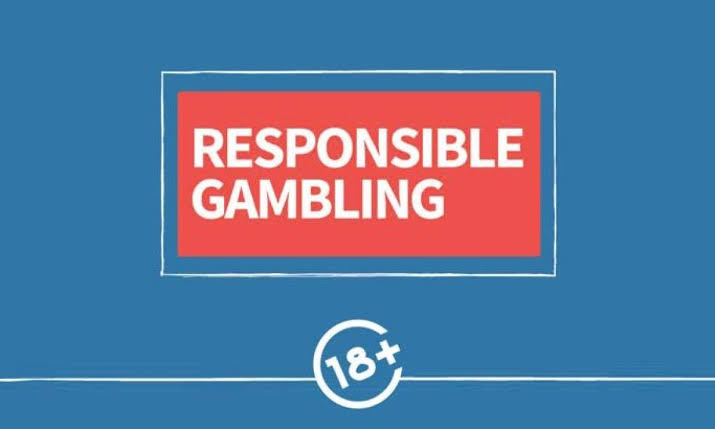Gambling is an exciting and entertaining activity that has become increasingly popular in Nigeria, with millions of people betting on sports, casino games, and lotteries. However, like any activity that involves risk and reward, it’s important to engage in gambling responsibly to avoid the negative consequences that can come from unchecked gambling habits. Responsible gambling is about enjoying the thrill of betting while staying in control, both financially and emotionally.
Here’s a comprehensive guide to help you gamble responsibly in Nigeria.
1. Understand the Risks of Gambling
First and foremost, it’s crucial to understand that gambling is not a way to make money. While there may be occasional wins, gambling should be treated as a form of entertainment, not a financial strategy. Every bet carries a risk, and there’s no guarantee of winning. The odds are often in favor of the house or bookmaker, so you need to approach gambling with the mindset that you could lose.
Knowing the risks helps you approach gambling with the right mindset and prevents you from falling into the trap of chasing losses or viewing gambling as a way to fix financial problems.
2. Set a Budget and Stick to It
One of the most important aspects of responsible gambling is managing your finances. Always set a budget before you start gambling. This budget should be money that you can afford to lose – never gamble with money that’s meant for essential expenses like rent, bills, or food. Once you’ve set a budget, be disciplined enough to stick to it, no matter the outcome.
Avoid increasing your bet size to try and win back losses, as this is a common way that people fall into debt through gambling. By setting limits and sticking to them, you ensure that your gambling remains an enjoyable hobby rather than a financial burden.
3. Set Time Limits
In addition to managing your finances, it’s equally important to manage your time when gambling. It’s easy to lose track of time when you’re engrossed in a game or betting on your favorite sports. To avoid this, set a time limit for your gambling sessions. This ensures that you don’t spend excessive amounts of time gambling, which can negatively affect your daily life, work, or relationships.
Once your time is up, stop gambling, even if you’re in the middle of a winning streak. Responsible gambling means being able to walk away at any time without it impacting your routine or other responsibilities.
4. Avoid Chasing Losses
One of the biggest mistakes gamblers make is chasing losses. When you lose a bet, it’s natural to want to win back the money immediately, but this is a dangerous mindset. Chasing losses can lead to reckless betting, increasing your stakes in the hope of a big win, which often results in even larger losses.
Responsible gambling means accepting that losses are part of the game. If you have a bad day or lose more than expected, take it as part of the experience and walk away. Never try to recover losses by gambling more than you can afford.
5. Know When to Walk Away
Responsible gambling also means knowing when to stop. If you’ve reached your budget or time limit, or if you’re starting to feel frustrated or emotional, it’s time to walk away. Gambling when you’re upset or stressed can lead to poor decisions and further losses.
It’s also important to recognize when gambling is no longer fun or when it starts to affect other areas of your life. If you notice that you’re spending too much time or money on gambling, it might be time to take a break or seek help.
6. Don’t Rely on Gambling for Income
Gambling should never be seen as a way to make a living. Some people might get lucky and win big, but this is not sustainable or reliable. The vast majority of gamblers experience more losses than wins, and relying on gambling as a source of income can lead to serious financial problems.
If you’re in a situation where you feel pressured to gamble to make ends meet, it’s a sign that you need to seek financial advice or assistance, not gamble more. Responsible gambling is about treating it as a form of entertainment, not a money-making venture.
7. Educate Yourself About Gambling
The more you know about how gambling works, the better equipped you are to make informed decisions. Take the time to understand the odds, rules, and risks involved in different types of gambling, whether it’s sports betting, casino games, or lotteries.
For example, in sports betting, understanding how odds work can help you make smarter bets. In casino games, knowing the house edge can give you a realistic expectation of your chances of winning. Educating yourself about the mechanics of gambling can help you avoid risky behaviors and manage your expectations.
8. Take Breaks and Know When to Seek Help
Gambling should never take priority over your personal life, work, or relationships. If you find that gambling is affecting your mental health, finances, or relationships, it’s important to take a step back. Taking regular breaks can help you keep things in perspective and prevent gambling from becoming a habit.
If you feel that gambling is starting to control your life, there’s no shame in seeking help. There are numerous resources and support groups available in Nigeria that can help you manage your gambling behavior, such as the Gambling Addiction Helpline or Gamblers Anonymous. They offer counseling and support to help individuals regain control over their gambling.
9. Avoid Gambling Under the Influence
It’s important to stay clear-headed while gambling. Alcohol or drugs can impair your judgment and lead to reckless betting. When gambling, make sure you’re in a clear state of mind so that you can make rational decisions. Gambling while intoxicated increases the likelihood of chasing losses and making risky bets, both of which can lead to significant financial losses.
10. Encourage a Culture of Responsible Gambling
Finally, promoting responsible gambling isn’t just about your own habits – it’s also about encouraging others to gamble responsibly. If you notice a friend or family member developing unhealthy gambling habits, try to talk to them and offer support. Share tips on responsible gambling and help them understand the importance of setting limits and managing risks.
Gambling is meant to be an enjoyable activity, and responsible gambling ensures that it stays that way. If you ever feel that your gambling is becoming a problem, don’t hesitate to seek help – there’s always support available to help you get back on track.
Gamble responsibly, without letting it take over your life.

